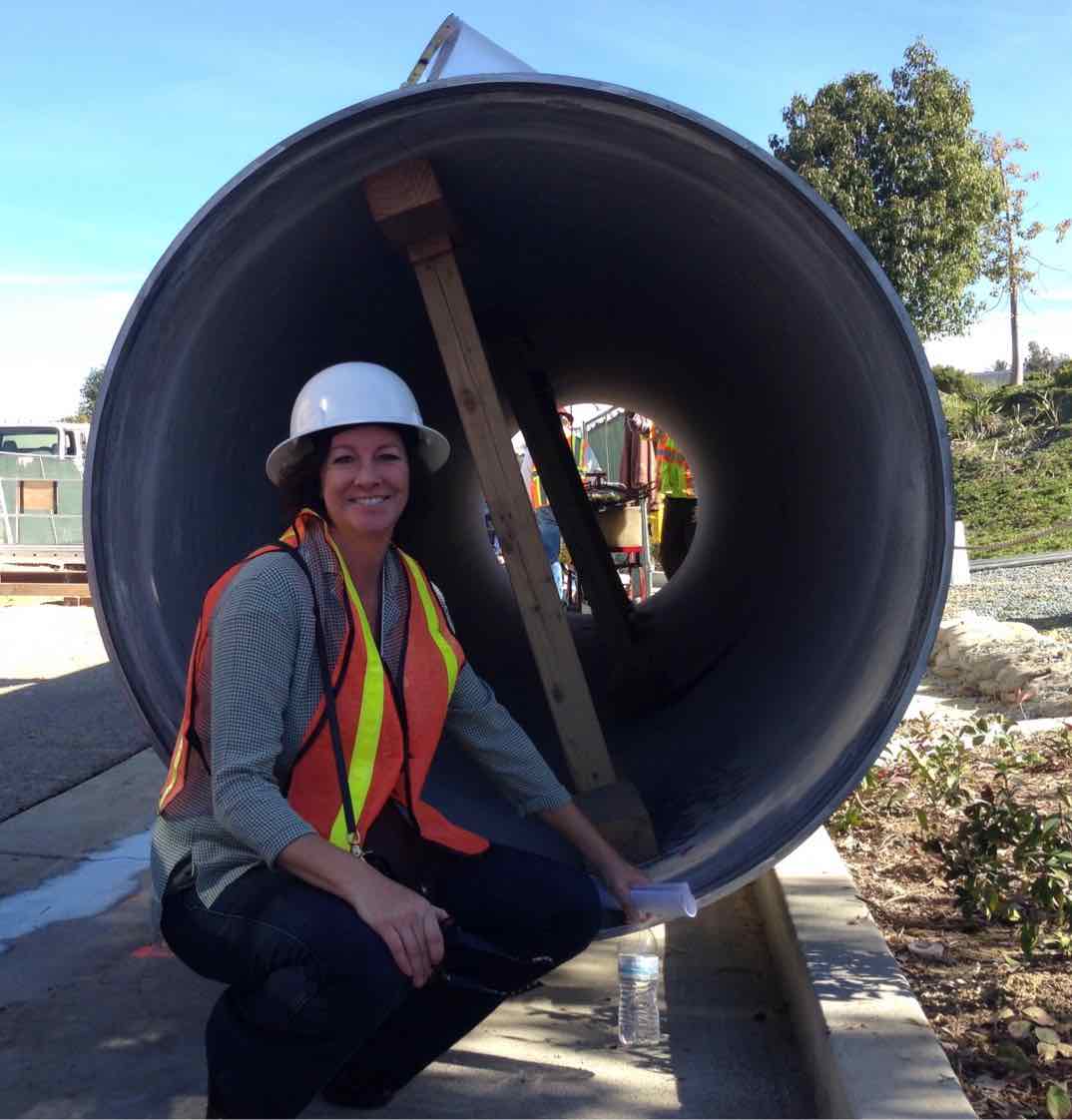 Meet Cari Dale, Water Utilities Director, City of Oceanside, a recipient of the Kirt Brooks Memorial Water Environment Scholarship in 2004. Cari graduated from Cal State San Bernardino with a Master’s Degree in Public Administration with an emphasis on Water Resources in 2005. Her Master’s project focused on Achieving Effective Asset Management for Water and Wastewater Utilities and has been extremely helpful in managing the utility in the City of Oceanside.
Meet Cari Dale, Water Utilities Director, City of Oceanside, a recipient of the Kirt Brooks Memorial Water Environment Scholarship in 2004. Cari graduated from Cal State San Bernardino with a Master’s Degree in Public Administration with an emphasis on Water Resources in 2005. Her Master’s project focused on Achieving Effective Asset Management for Water and Wastewater Utilities and has been extremely helpful in managing the utility in the City of Oceanside.
Cari recently shared her story with us on how she got involved, what motivates her and advice to anyone entering the profession.
When did you first know you wanted to work in the water profession?
Before I started working for a public agency, I had a variety of jobs that touched on many of the duties performed in a water utility including environmental sampling on the Mississippi River and working as a biologist in the Alaska fisheries. I was fortunate to start my career in water as a sample tech at the Encina Wastewater Authority and was able to use some of the skills I had developed with these early job experiences. My love of work in the water profession grew as my career progressed and I’m thankful to have had positive experiences with CWEA and peers in the water and wastewater industry throughout the years.
How did you first hear about the Kirt Brooks Scholarship?
I heard about the scholarship when I was involved with CWEA during my early years at Encina. I had actively pursued certifications for the Laboratory and Industrial Waste Inspector and the scholarship was one of the many offerings provided by CWEA to support strengthening my job related knowledge and skills.
Where did you use your scholarship earnings?
I attended Cal State San Bernardino and received a Master’s Degree in Public Administration with an emphasis on Water Resources in 2005. Before I entered the program, I had researched what education and experience was needed to be in a Manager and Director position and found that the Master’s program seemed to stand out as a “need to have” in order to take those next steps up the ladder.
My Master’s project focused on Achieving Effective Asset Management for Water and Wastewater Utilities and has been extremely helpful in managing the utility in the City of Oceanside. For instance, having a deeper understanding of the importance and use of data collected by operators has helped to ensure that we are spending our ratepayer money wisely and in the area of greatest need.
What has been your path to where you are today?
Like many young professionals entering the field, I started off in an entry level job conducting wastewater field sampling and inspections. I was able to move up by being a proven problem solver and by getting out of my comfort zone often. For instance, I had been successful at restarting a failing pretreatment program and helping my employer avoid a Compliance Order from the Regional Board. Because of this, I was asked to interface with the Health Department for the annual water system inspection, an area unknown to me at the time. I seemed to be that person that got the job done and I was rewarded with more challenging and advanced work. I know that obtaining my M.P.A. really propelled my career into management.
What is your advice to a student entering this profession?
I have a lot of thoughts in this area and I’m asked this very question a lot:
Be open to opportunities, even if they are not in your area of study. I found that I was in the right place at the right time when I was asked to take on management of the Solid Waste group due to a retirement in the Department. This was challenging and outside my area of comfort but this experience was invaluable later on in my career and was one of the reasons I was offered my position at the City of Oceanside.
I also recommend that students take industry specific classes and obtain certifications, in advance of a job coming open. Job applicants can outshine their peers when they have shown that they have an invested interest in the profession and are working hard to be someone that can “hit the ground running” once hired. Don’t stop advancing in your education and certification once you are in the industry!
Bottom line – when choosing to hire equally qualified candidates, I will always hire the one that brings a positive attitude to the workplace. A willingness to get the job done and enthusiasm for the job is hands down one of the deciding factors in hiring someone, even when this person has no experience in the industry.